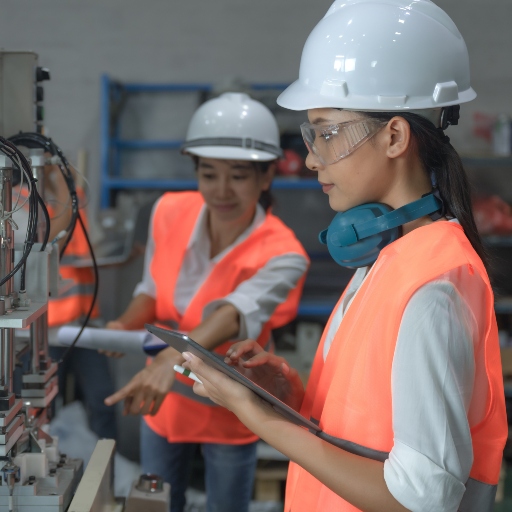In the dynamic landscape of the industrial and manufacturing sectors, employees play a pivotal role in driving growth, innovation, and success. As the industrial space continues to evolve, companies recognize the value of investing in their workforce’s professional development and career advancement.
By prioritizing employee growth and offering opportunities for learning and progression, industrial companies can create a thriving work environment that fosters loyalty, enhances productivity, and attracts top talent.
In this blog, we will explore the significance of professional development in the industrial space and outline effective strategies for promoting growth and retention.
Why is Professional Development Important to Industrial Workers?
In the fast-paced world of industrial and manufacturing, technological advancements and market demands frequently change. Professional development equips workers with the latest skills and knowledge needed to adapt to these changes effectively. Regular training helps employees stay relevant and keeps their skills up-to-date, ensuring they can contribute effectively to the company’s success.
When employees see their companies investing in their growth and career advancement, it boosts their morale and job satisfaction. Feeling valued and supported by their employers drives a sense of loyalty, leading to a more engaged and motivated workforce.
Employees who undergo regular training and skill development tend to feel more confident in their abilities. This confidence translates into increased productivity, as employees are more willing to take on challenges and handle responsibilities with a higher level of proficiency.
How Can You Promote Growth in the Workplace?
Industrial companies should establish clear and well-structured career paths for their employees. This includes outlining various career trajectories within the organization and providing employees with a roadmap to achieve their goals. Career paths serve as motivators, as employees can see how their efforts contribute to their advancement.
Cross-training is a powerful way to promote growth in the industrial space. Encourage employees to participate in training programs and projects outside their immediate roles. This not only helps them develop new skills but also broadens their understanding of the company’s operations, fostering a more cohesive and adaptable workforce.
Mentorship and coaching programs are invaluable tools for employee development. Pair experienced employees with those seeking guidance and support. This fosters knowledge sharing, skill development, and the nurturing of future leaders within the organization.
How Can Industrial Companies Properly Train and Develop Employees?
Before designing training programs, companies should assess the specific needs of their workforce. Conducting skills gap analyses and soliciting feedback from employees can identify areas for improvement and ensure that training initiatives align with organizational goals.
Incorporating technology-based learning solutions, such as e-learning platforms, webinars, and virtual reality training, can be efficient and cost-effective ways to train a large number of employees. These modern tools offer flexibility and accessibility, allowing employees to learn at their own pace.
Industrial companies should foster a culture of continuous learning by incentivizing employees to pursue additional certifications, attend industry conferences, or enroll in higher education programs. Recognizing and rewarding such efforts further reinforces the importance of professional development.
Why is Career Progression So Vital to Retaining Talent?
Employees are more likely to stay with a company that demonstrates a genuine interest in their professional growth and career advancement. When workers see that their employer values their contributions and is willing to invest in their future, they are more likely to remain committed to the organization.
High turnover rates can be costly and disruptive for industrial companies. By offering clear career progression paths and development opportunities, companies can reduce turnover and avoid the expenses associated with hiring and training new employees.
In a competitive job market, companies that prioritize career progression and professional development are more appealing to top talent. Skilled workers are more likely to choose employers who offer opportunities for growth and advancement, making it easier for companies to attract and retain the best candidates.
Career Advancement in the Industrial Space
Professional development and career advancement are integral to the success of industrial and manufacturing companies. Organizations can create a highly-skilled, engaged, and loyal workforce by investing in their employees’ growth and providing opportunities for learning and progression. The benefits of promoting growth in the workplace extend far beyond increased productivity; they contribute to a positive company culture, reduced turnover, and enhanced recruitment efforts.
In a rapidly changing industrial landscape, continuous learning and career progression are key differentiators for companies seeking to stay ahead. Embrace the power of professional development to foster a thriving and sustainable workplace, ensuring the long-term success of your industrial organization.
When you’re ready to invest in your employees’ growth and drive your industrial company to new heights, start by evaluating your organization’s training and development strategies. Incorporate clear career paths, embrace technology-based learning, and implement mentorship programs. By prioritizing career advancement and professional growth, you can create a workplace that attracts top talent and retains skilled employees, ensuring a bright future for your industrial enterprise.


